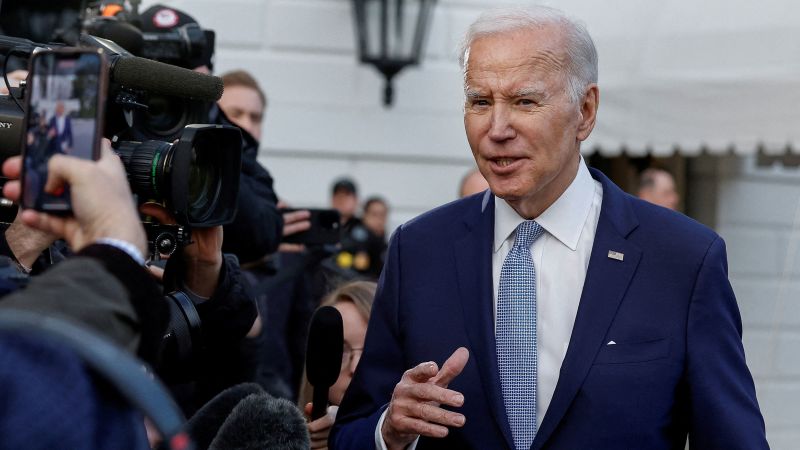
The White House is looking at concessions amid a petition and social media campaign
Can the Alaska Oil Willow Project be Cancelled? Climate Critics Have a Problem with the Natural Resources and Oil Resources Conservation Acts and the White House
The Biden administration will announce a decision on an oil drilling project that has drawn fierce criticism from climate advocates, and the White House has said that it may reduce the scope of the project.
The willow project is a large and decadeslong oil drilling venture on the Alaska’s North Slope which the state’s lawmakers say will create jobs and boost domestic energy production.
In addition, a surge of online activism against Willow has emerged on TikTok in the last week – resulting in over one million letters being sent to the Biden administration against the project and over 2.8 million signatures on a Change.org petition to halt Willow.
The project would generate enough oil to release 9.1 million metric tons of carbon pollution annually, equivalent to adding 2 million gas-powered cars to the roads, according to the administration. It would release hundreds of million of tons of carbon pollution over the course of 30 years, which is a significant amount for a power plant.
According to two sources familiar with the plan, the Biden administration is considering reducing the number of approved drilling pads from 3 to 2 and offering to boost nature preservation measures in other parts of the state.
White House officials are considering cutting the most ecologically sensitive drill site of the three, one source said. And in a final environmental impact statement, the administration described how it would plant trees to mitigate carbon emissions from the project and move some drilling infrastructure to protect local loon habitat.
It has sparked controversy even within the administration; when the Bureau of Land Management in Alaska released its preferred alternative of three drill pads last month, the US Department of the Interior put out a statement saying it had “substantial concerns” with the project, “including direct and indirect greenhouse gas emissions and impacts to wildlife and Alaska Native subsistence.”
Alaska’s Republican Senators were present on Wednesday. Murkowski and Sullivan said drill pads should not be reduced to appease environmental groups.
“If they go to two pads, we have told them we will view it 100% as a full denial,” Sullivan said. “Conoco has made it clear it would not be economically viable, and we have warned the White House: Don’t try to be cute.”
Depending on where the government lands on the massive oil project, it could face multiple lawsuits to keep the project from moving forward.
If the project is approved, Earthjustice will file a lawsuit against it. If the drill pads are reduced, there could be legal options for ConocoPhillips. ConocoPhillips spokesperson Dennis Nuss said the company is waiting to see a final decision on the project before it shares next steps.
Why the oil extraction on public lands is affecting Alaskans and Natives, and why the president has not responded to his pleas for a reduction of drill pads
Climate groups that have been celebrating monumental wins in Congress under Biden are now seeing a different kind of moment.
Tiernan Sittenfeld told CNN her group was not negotiating for a reduced number of drill pads, they still wanted to see the project canceled.
“It clearly flies in the face of both his incredible climate accomplishments to date and his goal of cutting climate pollution in half by 2030,” Sittenfeld said. “Such significant swaths of the coalition that supports him are deeply opposed, and we’re seeing that this is incredibly galvanizing for young people.”
“There’s a specific thing happening in a physical place; I think it makes it feel more real,” said Jamal Raad, co-founder and executive director for climate and clean energy group Evergreen Action. I do not think there will be any new voters for the Biden administration for approving the largest American oil extraction on public lands.
Alaska Natives are divided on the project. While the project has been largely opposed by the nearby Alaska Native village of Nuiqsut – which some villagers evacuated last year during a gas leak from another ConocoPhillips project in the area – it has garnered support from other Alaska Native tribes and officials who want the jobs and revenue the project could bring to the North Slope, which could boost the basic services for people that live there.
“When you talk about environmental justice and protecting the environment, us Alaska natives are part of that environment,” Alaska state Rep. Josiah Patkotak, who has no party affiliation, said on Tuesday. “We’re asking the president, his Cabinet, all those involved in the decision-making process to keep that in mind.”
Peltola, Murkowski and Sullivan have been asking White House staff to meet with Biden directly about the project, Murkowski told CNN – a meeting request that so far has not been added to the president’s calendar. Murkowski told CNN that if that happens after a Willow decision is released, “That’s pretty rude, I think.”
Murkowski told CNN that she has been a good friend of the administration. It goes both ways.
Why isn’t Alaskan Senator Joseph Biden so concerned about a project-scale oil-and-gas pipeline? An Alaskan law attorney contends that Willow is an industrialized village
The area where the project is planned holds hundreds of million of barrels of oil. That oil would take years to reach the market since the project has yet to be constructed.
In a recent personal letter to Interior Secretary Deb Haaland, Nuiqsut Mayor Rosemary Ahtuangaruak and two other Nuiqsut city and tribal officials said that the village would bear the brunt of health and environmental impacts from Willow. Villages get some financial benefit from oil and gas activity, but don’t see the same kind of impacts as Nuiqsut. We are in the center of the industrialization of the region.
“This is a huge climate threat and inconsistent with this administration’s promises to take on the climate crisis,” Jeremy Lieb, an Alaska-based senior attorney at environmental law group Earthjustice, told CNN. In addition to concerns about a fast-warming Arctic, groups are also concerned the project could destroy habitat for native species and alter the migration patterns of animals including caribou.
Why are we not getting any oil from a resource that has a second-to-none environmental track record? During a recent press conference, a Republican senator from Alaska said so.
During his 2020 presidential campaign, Biden vowed to end new oil and gas drilling on public lands and waters – which he initially carried out as part of an early executive order.

